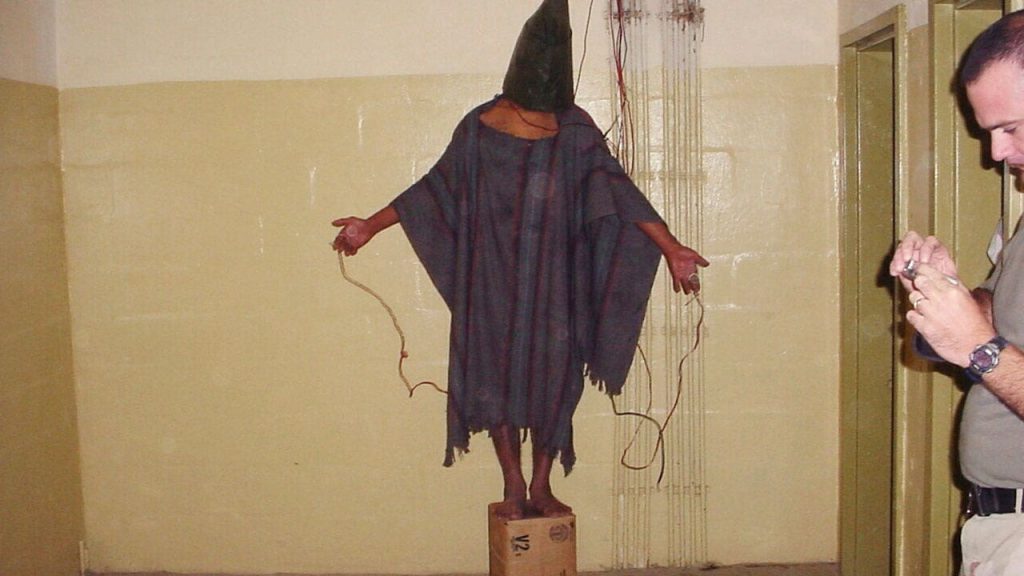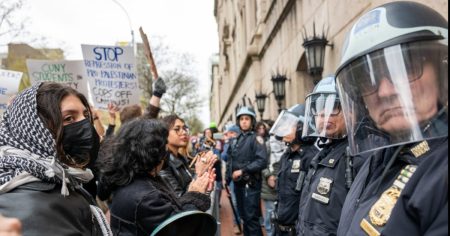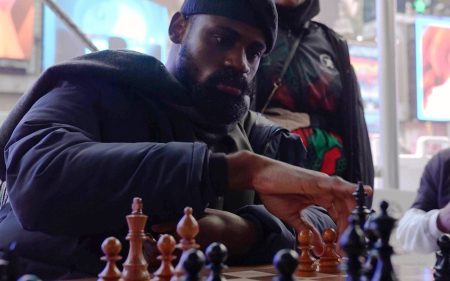The ongoing trial against Virginia-based military contractor CACI involves former detainees from Abu Ghraib prison in Iraq who allege abuse. The trial is moving quickly after being delayed for more than 15 years. The testimony from Salah Al-Ejaili, a former inmate, described various forms of abuse, including beatings, nudity, and threats of dogs. Al-Ejaili and two other detainees are accusing CACI of contributing to their torture by sending civilian interrogators as part of an Army contract. The case revolves around allegations that CACI contractors encouraged military police to abuse detainees before questioning them.
CACI’s lawyer, John O’Connor, argued that the detainees must prove they were personally abused and that there is no evidence directly linking CACI interrogators to the abuse. He claimed that it was the U.S. military, not the company, that oversaw the interrogators’ conduct. The plaintiffs’ lawyer, Baher Azmy, countered this by stating that CACI interrogators conspired with military police to abuse detainees before interrogations. The case is seen as one of the most disturbing events in recent American history, and the jury will hear testimonies from former Army generals who concluded that civilians filled a void in the chain of command at Abu Ghraib.
The trial in U.S. District Court in Alexandria is progressing rapidly, with a jury being seated, opening arguments heard, and key witnesses testifying. Torin Nelson, a former CACI interrogator, expressed concerns about the actions of some of his colleagues during his testimony. Former Army Cpl. Charles Graner, who was convicted for abusing detainees, stated in a recorded deposition that civilian interrogators provided instructions on handling detainees. Al-Ejaili’s emotional testimony included instances of being naked in a cold cell and handcuffed in stressful positions. He believes sharing his story with a jury is crucial for his healing process.
The defense for CACI revolves around proving the lack of direct evidence linking their employees to the abuse at Abu Ghraib. CACI’s lawyers are emphasizing that it was the military, not the company, responsible for overseeing the interrogators’ behavior. The plaintiffs argue that the company is liable because CACI interrogators allegedly encouraged military police to abuse detainees. The trial includes testimonies from key figures involved in investigating the Abu Ghraib scandal, shedding light on the role of civilians in the mistreatment of detainees. While the defense team attempts to distance CACI from the abuse allegations, the plaintiffs are focused on holding the company accountable for its actions during their time at the notorious prison.
The trial’s fast pace is notable given the delays and legal wrangling that have plagued the case for over a decade. With former detainees finally having the opportunity to testify in front of a U.S. jury, the case is garnering significant attention. It highlights the complexities of accountability and responsibility in cases of alleged abuse involving military contractors. As testimonies reveal details of the abuse suffered by detainees at Abu Ghraib, the legal battle between the plaintiffs and CACI continues to unfold, shedding light on a dark chapter in American history.














